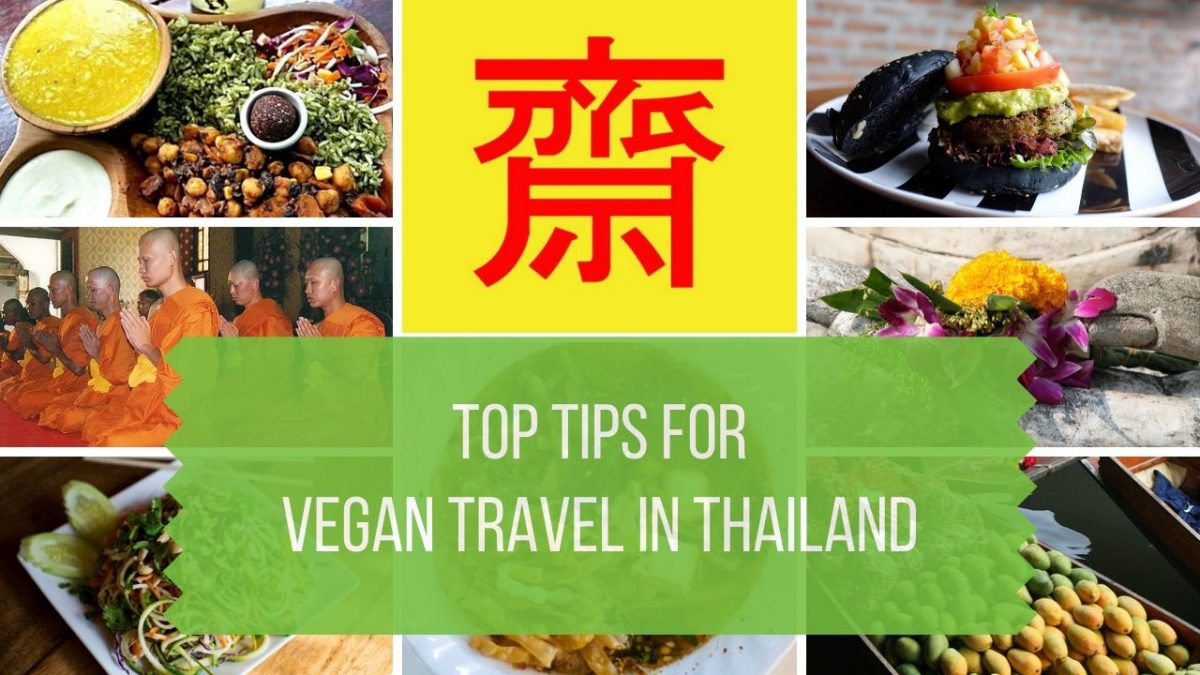Are you a vegan or vegetarian planning a trip to Thailand? Or maybe you’re just curious about the vegan cuisine in this exotic country? Well, you’ve come to the right place! In this article, we’re going to explore the world of vegan dining in Thailand and give you a comprehensive guide to the best plant-based restaurants and dishes you can find.
Thailand is known for its vibrant and diverse food culture, and this extends to the vegan and vegetarian scene as well. You’ll be amazed at the array of delicious and healthy options available to you. From traditional Thai dishes made with tofu and fresh vegetables to innovative plant-based creations, you’ll never be bored with the choices.
In this article, we’ll take you on a culinary adventure through the streets of Bangkok, where you’ll discover hidden gems and popular vegan spots alike. We’ll also delve into the regional cuisines of Thailand, such as the spicy and aromatic dishes of the north and the flavorful curries of the south. Whether you’re a foodie or a health-conscious traveler, there’s something for everyone in the vegan cuisine of Thailand. So, get ready to tantalize your taste buds and learn more about the incredible dining options that await you in this beautiful country.
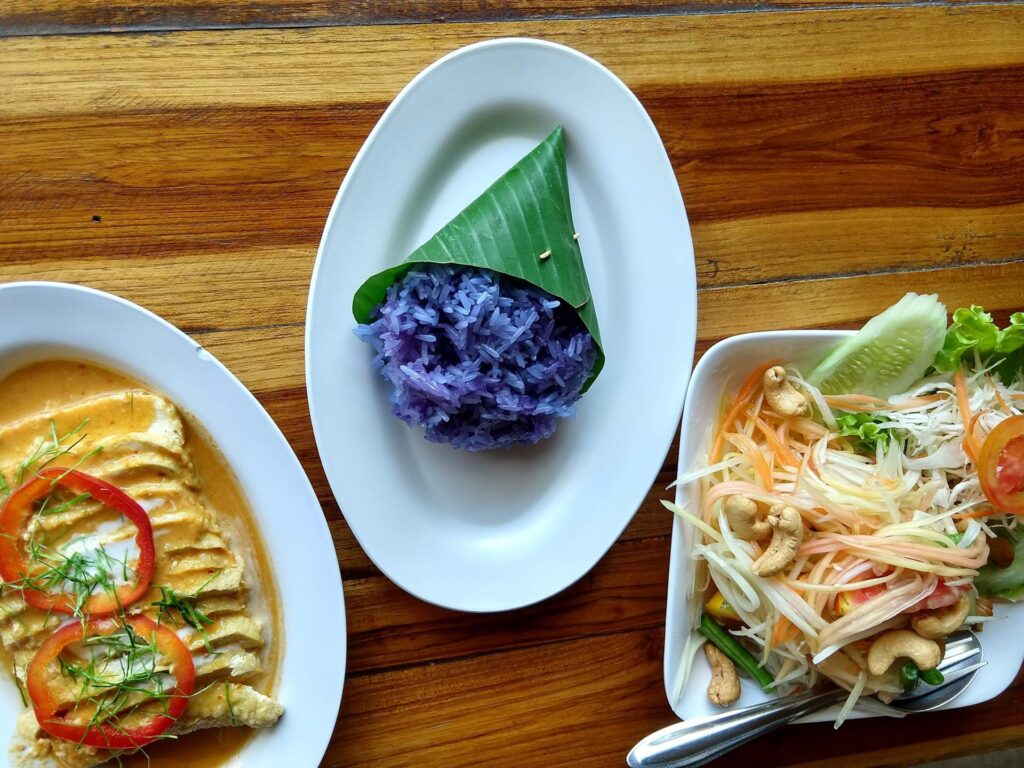
Introduction to Vegan Cuisine in Thailand
Thailand, with its vibrant food culture and rich culinary history, is a destination that offers a delightful array of vegan and vegetarian options. The country’s diverse regional specialties, street food culture, and fine dining scene all cater to those following a plant-based lifestyle. In this comprehensive dining guide, we will explore the nuances of Thai vegan cuisine, uncovering traditional dishes, regional specialties, street food culture, fine dining options, and even vegan-friendly travel destinations. So, whether you are a seasoned vegan traveler or a curious foodie looking to embark on a vegan culinary adventure, Thailand is sure to have something to satisfy your appetite.
Understanding the Concept of Veganism
Before diving into the realm of Thai vegan cuisine, let’s first understand the concept of veganism. Veganism is a philosophy and lifestyle that seeks to exclude the use of animals for food, clothing, or any other purpose. Vegans choose to adopt a plant-based diet, abstaining from the consumption of meat, dairy, eggs, and other animal-derived products. This ethical approach to food promotes compassion, environmental sustainability, and personal well-being.
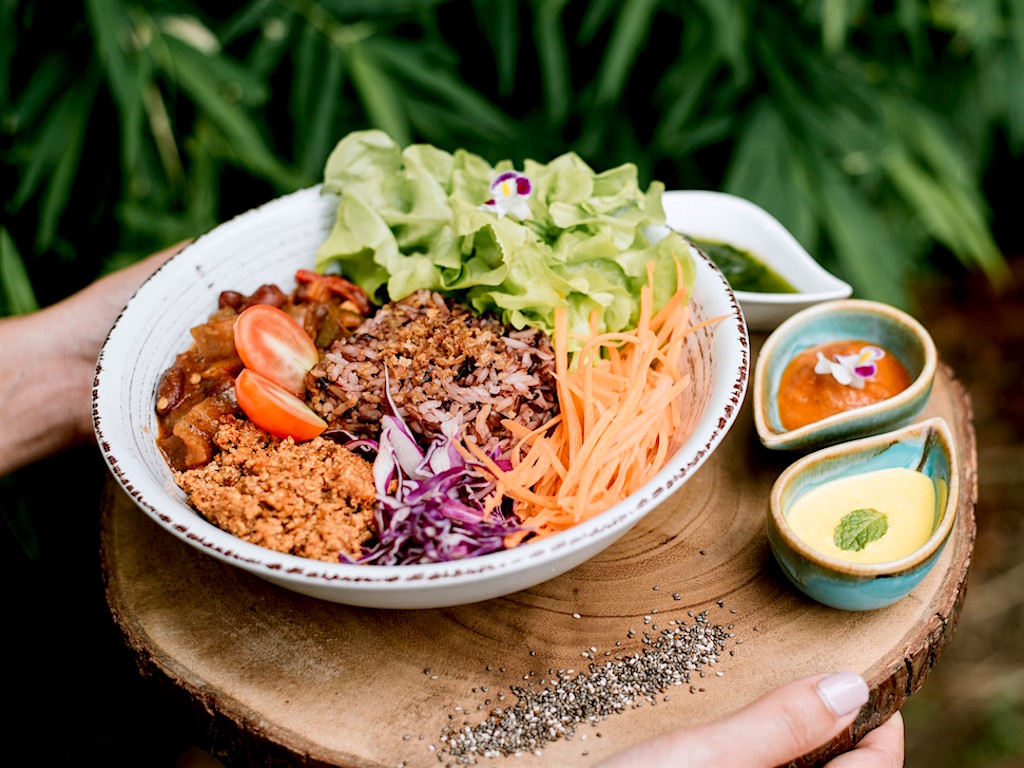
Thai Cuisine and Its Vegetarian-Friendly Options
Thai cuisine, known for its bold flavors and aromatic spices, is inherently vegetarian-friendly. With an abundance of fresh fruits, vegetables, herbs, and spices, Thai dishes can easily be adapted to suit vegan and vegetarian preferences. Traditional Thai cuisine utilizes a wide array of plant-based ingredients, such as tofu, tempeh, mushrooms, and an assortment of locally grown vegetables. The use of fragrant herbs like basil, lemongrass, and coriander further enhances the flavors of these dishes. With a little understanding and communication, you can enjoy the traditional flavors of Thailand while sticking to your chosen dietary preferences.
Traditional Thai Vegan Dishes
When exploring Thai vegan cuisine, it is essential to familiarize yourself with the classic dishes that showcase the country’s culinary heritage. Thai curries and stir-fries are among the most popular choices for vegans. Green curry, red curry, and massaman curry can all be made using a variety of vegetables and plant-based protein sources like tofu or mushrooms. Stir-fried dishes, such as Pad Thai and Pad See Ew, can also be easily adapted to be vegan-friendly by omitting meat or seafood and using tofu or vegetables instead.
Thai salads and soups are another excellent option for vegans. Som Tam, a refreshing green papaya salad, is typically vegan and bursting with flavors of lime, chilies, and peanuts. Tom Yum soup, a spicy and sour broth, can be made with a vegetable-based broth and loaded with a variety of vegetables, mushrooms, and aromatic herbs. These dishes are both healthy and packed with vibrant flavors that epitomize the essence of Thai cuisine.
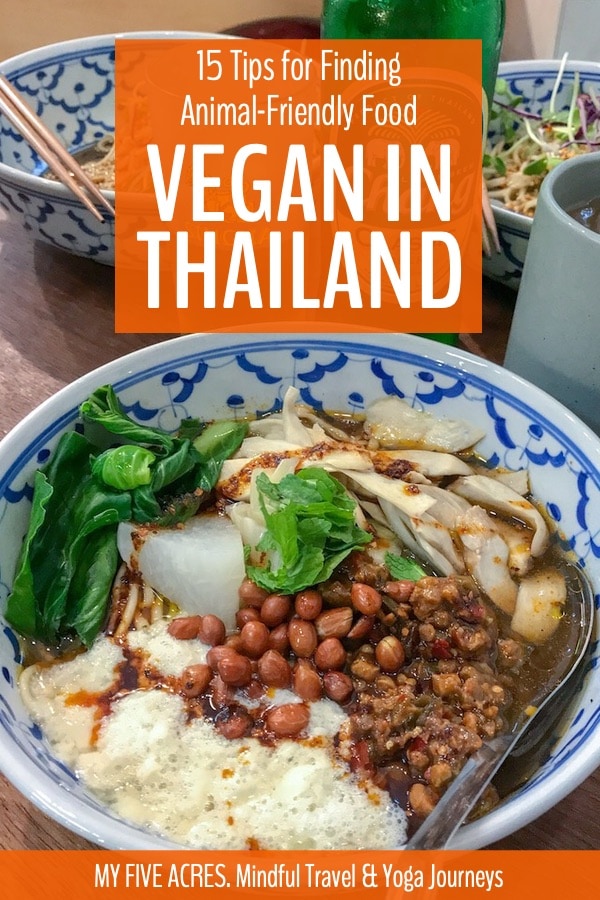
Regional Specialties
Thailand’s regional cuisines offer a diverse range of flavors and ingredients that are worth exploring for any vegan traveler. From the northern mountains to the southern coastal regions, each area has its unique culinary traditions and vegan specialties.
Northern Thailand’s Unique Vegan Delicacies
In northern Thailand, you’ll find dishes influenced by neighboring countries like Myanmar and Laos, resulting in a fusion of flavors. The region is known for its use of fragrant herbs, dried spices, and sticky rice. One must-try vegan dish is “Khao Soi,” a rich and creamy curry noodle soup made with coconut milk, curry paste, and various toppings like tofu, crispy noodles, and pickled mustard greens.
Exploring Southern Thai Vegan Cuisine
The southern region of Thailand boasts a cuisine that is heavily influenced by Malay and Indian flavors. Known for its spicy and aromatic dishes, the region offers vegan options that will tantalize your taste buds. “Massaman Curry” is a must-try Southern Thai dish, made with a rich and flavorful curry paste, coconut milk, potatoes, and peanuts. Another vegan favorite is “Khanom Jeen,” a dish consisting of rice noodles served with a variety of spicy and tangy curries, fresh herbs, and vegetables.
Vegan Street Food Culture
No visit to Thailand is complete without indulging in the vibrant street food culture that lines the bustling streets and night markets. Contrary to what some may think, vegans can still embrace this culinary adventure by choosing from a range of delectable vegan options available.
Popular Vegan Street Food Options
One of the most iconic street food dishes in Thailand is “Pad Thai.” This stir-fried noodle dish can easily be customized to your vegan preferences by substituting meat and seafood with tofu and vegetables. Another popular vegan-friendly option is “Mango Sticky Rice,” a sweet and fragrant dessert made with ripe mangoes, sticky rice, and coconut milk. Additionally, look out for vendors offering “Satay” skewers made with grilled tofu or vegetables and served with peanut sauce.
Exploring Night Markets for Vegan Delights
Night markets are a treasure trove for vegan food enthusiasts. While exploring the various stalls, you’ll discover an array of vegan-friendly delicacies. “Kanom Krok,” small coconut custard cakes, are a popular vegan treat found in many night markets. “Roti” is a crispy pancake that can be filled with fruits, chocolate, or coconut, making it a delightful vegan indulgence. Don’t forget to try “Kao Niew Ma Muang,” a popular Thai dessert featuring sweet sticky rice paired with ripe mangoes.
Vegan Fine Dining in Thailand
For those seeking a more upscale dining experience, Thailand also offers a selection of vegan fine dining restaurants. These establishments have elevated vegan cuisine to new heights, combining traditional Thai flavors with innovative techniques and presentation.
Upscale Vegan Restaurants and their Innovations
Upscale vegan restaurants such as “Ethos” in Bangkok and “Evolution” in Phuket are recognized for their innovative approach to vegan cuisine. Here, you can indulge in meticulously crafted dishes made from locally sourced, organic ingredients. From vegan sushi rolls and imaginative vegan cheese platters to artistic vegan desserts, these establishments are pioneers in redefining the boundaries of plant-based cuisine.
Tasting Fine Thai Vegan Fusion Cuisine
Another trend in Thai vegan dining is the fusion of traditional Thai flavors with international cuisines. Restaurants like “Veganerie” in Bangkok offer a fusion of Western and Thai-inspired dishes. With items like vegan pizzas topped with Thai spices and vegan burgers featuring Thai flavors, these places provide a unique twist to traditional Thai cuisine.
Finding Vegan Restaurants in Thailand
Finding vegan restaurants in Thailand has become increasingly convenient, thanks to the rise of vegetarian and vegan-friendly directories and online platforms dedicated to promoting plant-based dining options.
Utilizing Vegetarian and Vegan Restaurant Directories
Vegetarian and vegan restaurant directories such as “HappyCow” and “Vegan Thailand” are excellent resources for finding vegan restaurants in the country. These directories provide comprehensive listings and reviews of vegan and vegetarian-friendly establishments, making it easier for you to locate the perfect dining spot.
Tips for Locating Authentic Vegan Eateries
If you prefer a more authentic local experience, venture off the beaten path and explore the areas favored by locals. Markets and food stalls that primarily cater to locals are likely to have vegan options, even if they are not explicitly labeled as such. Don’t hesitate to ask for vegan options or inform the vendors of your dietary preferences, as they are usually more than willing to accommodate.
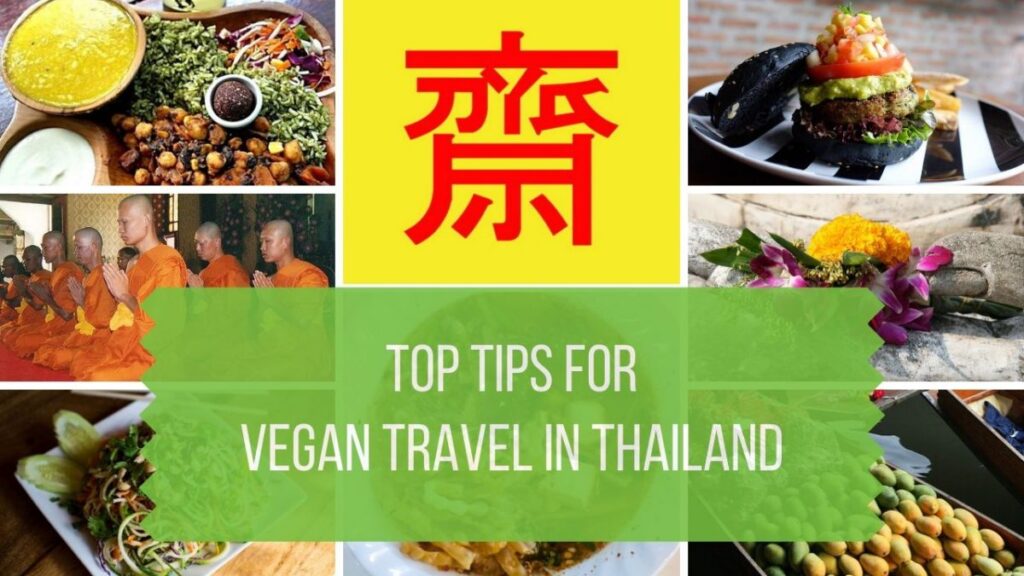
Vegan-Friendly Travel Destinations
Beyond Bangkok, there are numerous destinations in Thailand that offer vegan-friendly experiences, making it easier to explore the country’s diverse cuisine.
Discovering Vegan Cuisine Beyond Bangkok
While Bangkok is known as the vegan foodie capital of Thailand, other cities like Chiang Mai, Phuket, and Krabi also have thriving vegan scenes. Chiang Mai, in particular, is a vegan paradise, with a multitude of vegan and vegetarian restaurants and cafes scattered throughout the city. From trendy plant-based eateries to quaint vegan bakeries, you’ll find an array of options to indulge in.
Excursions to Vegan Resorts and Retreats
For a truly immersive vegan experience, consider planning a stay at one of Thailand’s vegan resorts or wellness retreats. These havens offer plant-based meals, cooking classes, spa treatments, and wellness activities catered to vegans and health-conscious travelers. Places like Phuket Cleanse Vegan Fitness Retreat and Museflower Retreat & Spa provide an ideal setting to relax, rejuvenate, and nourish your body and soul.
Vegan Nutrition and Thai Ingredients
Thai vegan cuisine offers a wealth of essential nutrients derived from its diverse range of ingredients. Here are some key nutrients found in Thai vegan dishes:
Key Nutrients in Thai Vegan Cuisine
Protein is a vital nutrient for vegans, and Thai cuisine offers numerous plant-based protein sources. Tofu, tempeh, lentils, chickpeas, and an assortment of nuts and seeds are all commonly used in Thai vegan recipes. These ingredients not only provide protein but also offer essential vitamins, minerals, and dietary fibers.
Thai cuisine also incorporates a variety of herbs and spices that provide antioxidative and anti-inflammatory properties. Lemongrass, basil, turmeric, and galangal are just a few examples of these potent ingredients that contribute to the overall nutritional benefits of Thai vegan cuisine.
Exploring Unique Thai Plant-Based Ingredients
Thai cuisine utilizes unique plant-based ingredients that add distinctive flavors and textures to dishes. Young jackfruit is a popular meat substitute in Thai cuisine, often used in curries and stir-fries to replicate the texture of meat. Banana blossoms are another unique ingredient used in salads and curries, offering a meat-like texture and absorbing flavor from the accompanying spices.
Thai Vegan Desserts and Beverages
No meal is complete without a sweet ending or a refreshing beverage. Thai vegan desserts and beverages offer a delightful conclusion to your vegan culinary journey.
Delicious Vegan Sweets and Treats
Mango Sticky Rice, mentioned earlier, is an absolute must-try dessert in Thailand. Other vegan dessert options include “Kluay Kaek” (deep-fried bananas), “Khanom Chan” (a multi-layered coconut dessert), and “Khanom Khrok” (coconut-rice pancakes). These desserts showcase the unique flavors and textures of Thai sweets, making them a great finale to any meal.
Refreshing Beverages to Complement Vegan Meals
To complement your vegan meals, Thailand offers a variety of refreshing beverages. “Nam Dok Anchan” is a vibrant blue herbal drink made from the petals of the butterfly pea flower, often combined with lime or lemongrass for a refreshing twist. Fresh coconut water is a popular choice for hydration, and “Cha Yen” (Thai iced tea) can be enjoyed by substituting dairy with soy or coconut milk for a vegan-friendly version.
Conclusion
Embracing the vegan culinary delights of Thailand is an adventure that promises to satisfy not only your taste buds but also your soul. From traditional Thai dishes to regional specialties, street food culture to fine dining, Thailand offers an extensive range of vegan options for every food enthusiast. By utilizing vegetarian and vegan directories, exploring local markets, and venturing beyond Bangkok, you’ll discover the hidden gems that make Thai vegan cuisine so unique. So pack your bags, embark on this culinary journey, and savor the flavors of Thailand, one plate at a time.
